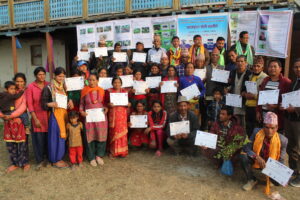
Demand-driven vocational training revives remote regions of Nepal
In the rural parts of Nepal, most people still live from agriculture – including in the communities of Sunapati, Doramba and Khadadevi in Ramechhap. The

In the rural parts of Nepal, most people still live from agriculture – including in the communities of Sunapati, Doramba and Khadadevi in Ramechhap. The
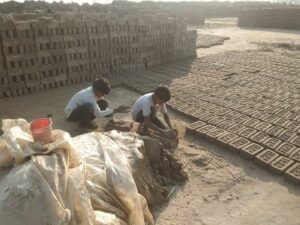
The organization Our Sansar was founded in February 2009 by Julia Krepska to support educational projects for disadvantaged children in communities in Nepal that do
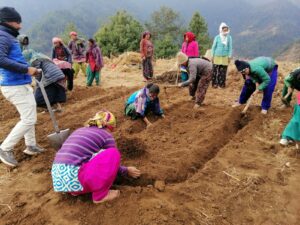
The aim of this community project is to enable the women of the village to shape their own lives. Malnutrition is a problem, especially in
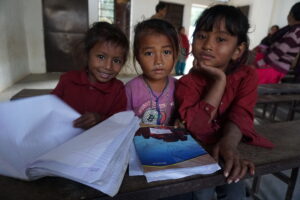
Despite compulsory schooling since 1975, only 89% of children in Nepal are enrolled in primary school. Poverty and social status have an impact on education
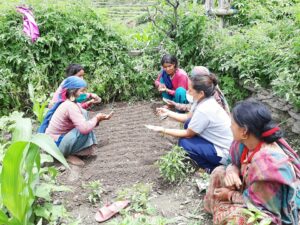
In the severely disadvantaged community of Bhee in Mugu, a remote mountainous district in the Karnali region in northwestern Nepal, an agricultural project is intended
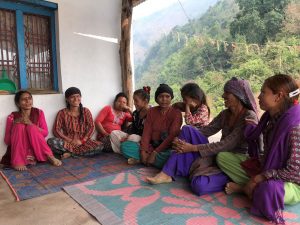
By setting up a model farm with model fields and greenhouses, as well as training in organic farming, the women in the community of Mulkot,
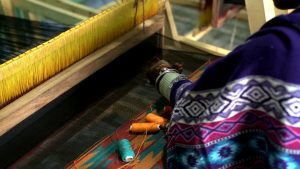
A fabric production facility for 30 weavers is to be created in Kawasoti. The Dhaka Weaving House builds on a previous project through which the
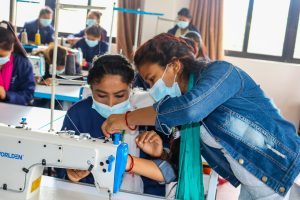
Establishment of Sewing and Textile Department at Olgapuri Vocational School, Lalitpur. Initially, Kamalari women from western Nepal who have been freed from child slavery can
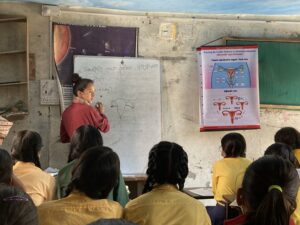
In rural Nepal, which is dominated by Hinduism, girls and women are disadvantaged in many respects. One of the main reasons has to do with
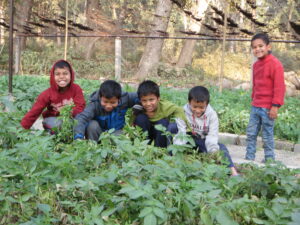
The Supa Inclusive School is located in one of the poorest regions of Nepal in the Far West (Kailali District) and gives around sixty children,
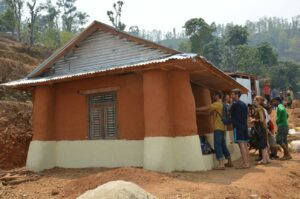
Promotion of the study and training stay on the subject of earthbag building in Nepal by Dr. Owen Geiger, whose results have been incorporated into
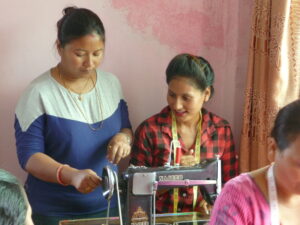
In the village of Suntakhan, District of Gokarneshwor, women have the opportunity to learn practical basic skills in sewing and tailoring from an experienced seamstress
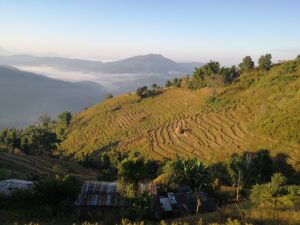
In three mountain villages in central Nepal, the Schöck Family Foundation financed the creation and maintenance of forest gardens for 27 farming families with a
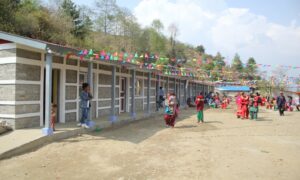
The initiative included, among other things, the reconstruction of several destroyed schools and teacher training courses. In the mountainous region around Bhandar, around 30 schools